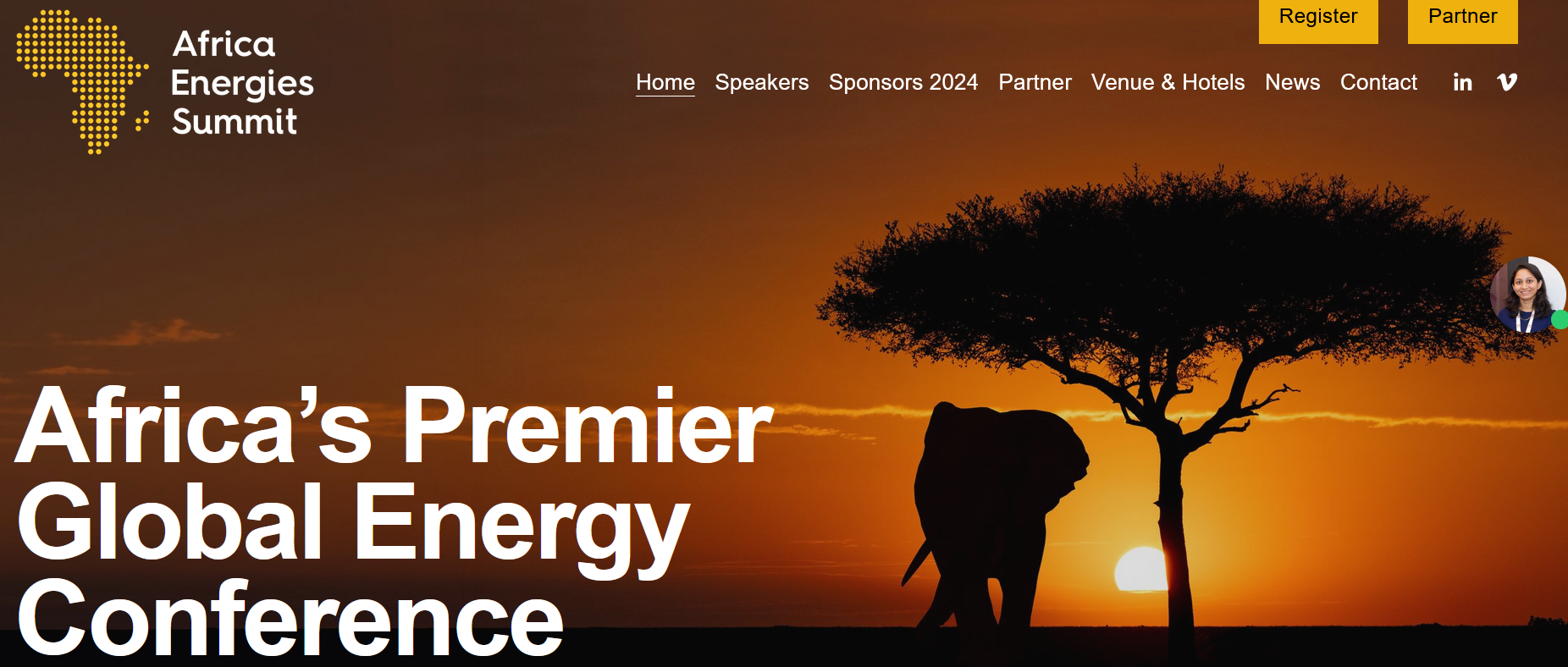
African Energies Summit: Exposing the Colonial Energy Conference in London
The disconnect is terrifyingly stark. Last week, the Guardian newspaper reported that the “World’s top climate scientists expect global heating to blast past 1.5C target”, with the planet heading for at least 2.5C of warming “with disastrous results for humanity.”
 The disconnect is terrifyingly stark.
The disconnect is terrifyingly stark.
Last week, the Guardian newspaper reported that the “World’s top climate scientists expect global heating to blast past 1.5C target”, with the planet heading for at least 2.5C of warming “with disastrous results for humanity.”
Leading climate scientists were said to be helpless and broken at the world’s inability to tackle the climate crisis by reducing our use of fossil fuels.
As scientists despair, the oil industry continues business as usual. Today at a central London hotel, the African Energies Summit begins. It is billed as one of the continent’s top energy conferences. It is sponsored by some of the world’s biggest energy companies, such as Shell, Chevron, Exxon, and Total. Many African governments eager to push hydrocarbon development are also attending.
It is worth remembering that it is a closed space of carbon colonialization happening in London, thousands of miles away from the frontline of exploitation and extraction. As the global energy elite rub shoulders together, impacted communities and civil society are excluded. Their voices are silenced.
Firstly, it is very difficult for frontline African communities to get visas to the UK. Secondly, the costs of flights and summit attendance are prohibitive for many communities. And thirdly, even when civil society tries to attend, they are excluded.
Last year, Salome Nduta, Africa coordinator for OilWatch Africa, was deliberately removed from the list of delegates at the Summit. In a move that stunk of racism, Nduta was told it was “sold out” even as organizers continued to advertise tickets. “I feel so angry,” Nduta told DeSmog. “They didn’t want me to be there.”
Nduta added at the time: “As a woman, we struggle to be given a voice in these spaces, and as an African woman the hurdles I’ve faced back home to work in this area have been enormous,” Nduta said. “To finally have the opportunity to participate in this space and then to face this whole other level of discrimination – I can’t believe it,”
Beyond the blatant inequality, many of the sponsor companies have highly controversial African operations. Across the continent, frontline communities are battling oil development, which has had devastating consequences and left a legacy of damaging pollution and deep intergenerational trauma.
Shell’s devastation of the Niger Delta and complicity in human rights abuses, rape, torture, and the murder of Ken Saro-Wiwa and the other Ogoni 9 in the mid-nineties is well documented.
For decades, the Niger Delta communities have tried to get justice in the courts, attempting to hold the oil giant to account.
As these lawsuits continue, Shell caused further outrage earlier this year when it announced it was selling its onshore assets in the country. As James Marriott from Platform and I wrote back in February: “This month’s sale seems another technicality by Shell to try and avoid legal liability. “
Celestine Akbopari, a long-term Ogoni activist, said that the sale is a predatory deal that will not benefit the country. He argues: “Shell has to restore our environment and lost livelihoods before selling anything. Who will inherit the liabilities and damaged environment the company is trying to run away from? Our environment should be restored to the level Shell met it.”
The British law firm, Leigh Day, representing many of the Nigerian plaintiffs, said: The law firm added that “it would be unconscionable for Shell to pack up its onshore operations in Nigeria without cleaning up its mess and paying compensation …. We consider that Shell, having made billions of pounds over decades from extracting oil resources from Nigeria, should fulfill its legal responsibilities and not leave behind an environmental catastrophe as it seeks to exit the Niger Delta.”
Earlier last month, international and African civil society organizations wrote to the Nigerian regulators asking them to stop the sale. Last week, there was a hearing in the Nigerian House of Representatives on the matter. The civil society organizations submitted a report to the Nigerian parliamentarians. “The international oil companies should not be permitted to evade their obligations to remediate the legacy of pollution, regardless of its origins,” their statement read.
Shell is not alone. French oil giant TotalEnergies, which is currently celebrating 100 years in operation, is another sponsor of the London Summit. Last month, an OCI colleague, Charity Migwi, noted that “the company’s relentless pursuit of profit has come at the expense of Africa’s most vulnerable communities and irreplaceable ecosystems.”
“It’s in Africa where TotalEnergies’ actions have left some of the deepest scars,” noted Migwi.
One of the deepest scars is the East African Crude Oil Pipeline, which will transport oil from Uganda to the coast of Tanzania. Late last year, a Global Witness investigation uncovered “evidence that TotalEnergies has been party to bullying and intimidation of communities affected by the controversial EACOP project in Uganda and Tanzania, with community members reportedly feeling pressured into compensation deals for their land.”
In several cases, the investigation also “found evidence that suggests TotalEnergies was in communication with Ugandan state authorities prior to threats and detentions of anti-oil campaigners.” Global Witness also accused TotalEnergies “of downplaying abuses and ‘gaslighting’ defenders” and called for an independent investigation into TotalEnergies’ role in this crackdown on land and environmental defenders.
Both TotalEnergies and Shell are now exploring offshore Namibia, which is seen as one of the industry’s global hotspots. TotalEnergies believes just one of its offshore fields could contain 2 billion recoverable barrels of oil, and potentially produce 180,000 barrels a day.
However, oil exploration activity is not just onshore. Brian Reinsborough, the CEO of the Canadian company ReconAfrica, will also speak at the summit. Over the last three years, ReconAfrica has been controversially trying to exploit what it calls “the last major onshore oil discovery on Earth”, in the Kavango region of Namibia.
Critics contend that Recon’s activities threaten the Okavango Delta, one of the most iconic World Heritage sites. The delta is one of the richest biodiverse places on Earth, supporting the world’s largest remaining population of African elephants as well as lions, cheetahs, wild dogs, hundreds of species of birds, and over 1,000 species of plants.
Nearly one million people depend on the water within the Delta watershed. According to climate experts, the region is warming at twice the global average rate.
Recon’s activities have caused global outrage. A three-year investigation by National Geographic unearthed serious problems with ReconAfrica’s oil and gas drilling in the Okavango Delta watershed. The series of eleven stories exposed how the company “didn’t adequately consult with local communities about the full drilling plan as required by Namibian law; intimidated local opponents, violated its promise to line its drilling waste pits to prevent groundwater pollution; failed to secure legally required water and land permits, and drilled inside a Wildlife Conservancy without legal rights, and bulldozed roads illegally through protected areas.
So far, the company has failed to find oil. Despite this, Recon is about to start drilling a new well in the Kavango region next month, which the local communities oppose. This week, at the summit, Recon’s Reinsborough will talk about “Namibia’s potential.”
The communities directly affected by the drilling will be absent from the discussion. So too will be the million people whose water could be contaminated. Ditto for the tens of millions of people on Africa’s climate change frontline.
Civil society is determined that the colonial energy conference should not happen in secret. Last year, the Summit was targeted by The People’s Health Movement, which issued a statement. “People in London are taking action at the Africa Energies Summit today to stand in solidarity with communities resisting the violence of fossil fuel companies across Africa. Shell, TotalEnergies, and other destructive corporations gathered in London must pay for their harm to communities across Africa and their contributions to the climate crisis.”
This year, civil society groups will also be protesting outside the Summit against corporate colonialism and continued extraction. The oil industry should not be allowed to operate in secret as it continues to ignore climate science and destroy our collective future by carrying on drilling regardless.
It is time that the voices of frontline communities who are fighting back and scientists are heard and prioritized. Before it’s too late.
